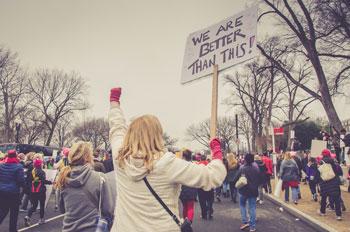 A million years ago when I was a mother of young children, one of the Precious Jewels found himself in a sudden slugfest with a cousin in our front yard. Both boys were young enough and small enough that I could separate them, which I did. Holding them at arm’s length, I demanded apologies and a handshake to end the fisticuffs. They did so, albeit grudgingly, and as I released them, the cousin – apparently not quite finished – stuck out his foot and tripped the Precious Jewel, who fell splat onto the grass.
A million years ago when I was a mother of young children, one of the Precious Jewels found himself in a sudden slugfest with a cousin in our front yard. Both boys were young enough and small enough that I could separate them, which I did. Holding them at arm’s length, I demanded apologies and a handshake to end the fisticuffs. They did so, albeit grudgingly, and as I released them, the cousin – apparently not quite finished – stuck out his foot and tripped the Precious Jewel, who fell splat onto the grass.
I was reminded of this long-ago story when I read a recent New York Times opinion piece written by two Harvard government professors. Steven Levitsky and Daniel Ziblatt authored the just-published “How Democracies Die,” and they say Americans have plenty to worry about with our democracy. In their Times column, the professors contend that our real problem is not a president who at best cannot remember what he has said in the past and contradicts himself or at worst exaggerates and lies routinely. The authors conclude that the president is “a weak and inept leader,” but that he is not our main problem.
One of our main problems, the professors say, is our overwhelming lack of tolerance for the views of our fellow citizens – our polarization along party lines.
A vital component of democracy, Levitsky and Ziblatt contend, is respect for others, no matter how much we may disagree with them politically, socially and culturally. They describe this respect as being an understanding that people who think differently than we do love our country just as much as we do, even if they hold different opinions. According to the professors, some polarization is likely healthy if only to expose us to other ideas, but extreme polarization – and some would contend we are already there – can and has killed democracies. Think Chile in the early 1970s and Venezuela more recently.
Levitsky and Ziblatt contend that America is more polarized than any time since the 1800s, when fistfights, canings and the waving around of pistols and knives took place on the floor of Congress during the run up to the Civil War. As evidence, they cite polling data indicating that both Democrats and Republicans say they would not be pleased if their child married someone of the opposite political party and that the other party makes them feel “afraid.”
Another vital component of a healthy democracy, the professors assert, is forbearance, which they define as self-restraint in the exercise of power. In other words, power should not be exercised just because it is there. Sometimes it is better to let something slide than to make an issue of a matter that may well blow over on its own. Most of us know and exercise this in our personal and working lives, but elected leaders on both sides seem to have forgotten how to do so in their public lives.
Both Democrats and Republicans have held up legislation and executive and judicial appointments – not because such delays were positive for our nation, but because they annoyed and possibly damaged the other party – in other words, just because they could.
Just last month Congress allowed the government of the United States to shut down. Our elected leaders played a game of chicken because they did not want to work with the other side – in other words, just because they could. Other rounds of shutdown machinations loom.
This is no way to run a government and no way for Americans to think about each other. The professors conclude their Times piece with this.
“The lessons of history are clear. Extreme polarization can wreck even established democracies. America is no exception. As long as Americans do not overcome their deepening partisan animosities, democracy remains at risk – President Trump or no President Trump.”
But back to the Dicksons’ front yard in the early ’90s. Just like Congress in the mid-19th century, there was a fistfight. An authority figure, in this case, Mom, stepped in to bring the combatants to their senses and restore order and civility. Even though one combatant could not quite restrain himself from one more attack, the battle did end; the cousins remained friends, and, one hopes, learned something about human nature and how to conduct themselves appropriately.
I hope and pray the same for our nation.